#andrew ray
Explore tagged Tumblr posts
Text
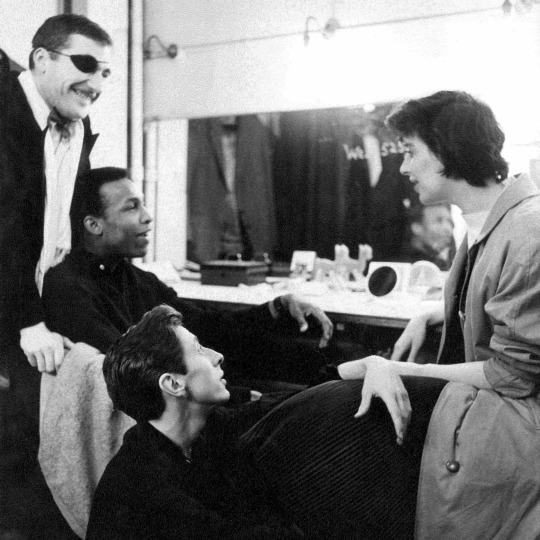
Backstage at the Broadway stage production of A Taste of Honey, 1960.
#*mine#broadway#theatre#a taste of honey#billy dee williams#andrew ray#nigel davenport#shelagh delaney
17 notes
·
View notes
Text
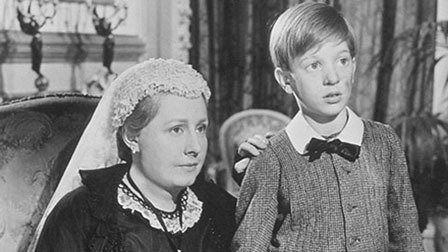
Irene Dunne-Andrew Ray "El diablillo y la reina" (The mudlark) 1950, de Jean Negulesco.
3 notes
·
View notes
Text

Comic Ted Ray and his son Andrew meet the King and Queen at the Royal Command Film Performance, 1950. (British Pathé)
The film shown that year was The Mudlark - in which Andrew Ray played the title part - a street urchin who sneaks into Windsor Castle to meet Queen Victoria.
Andrew Ray went on to play King George VI (when Duke of York) in the stage and television productions of Crown Matrimonial - a drama centered on the abdication crisis. So successful was his depiction that he was cast in the same role in the television series Edward & Mrs. Simpson (1978)

ABOVE: Wendy Hiller (Queen Mary) and Andrew Ray in the stage production of Crown Matrimonial (London, October 1972)
15 notes
·
View notes
Text
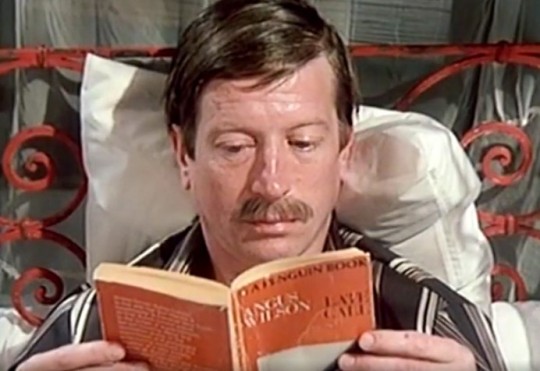
Late Call by Angus Wilson
Tales of the Unexpected: "Poison"
2 notes
·
View notes
Text
"OUR MUTUAL FRIEND" (1976) Review
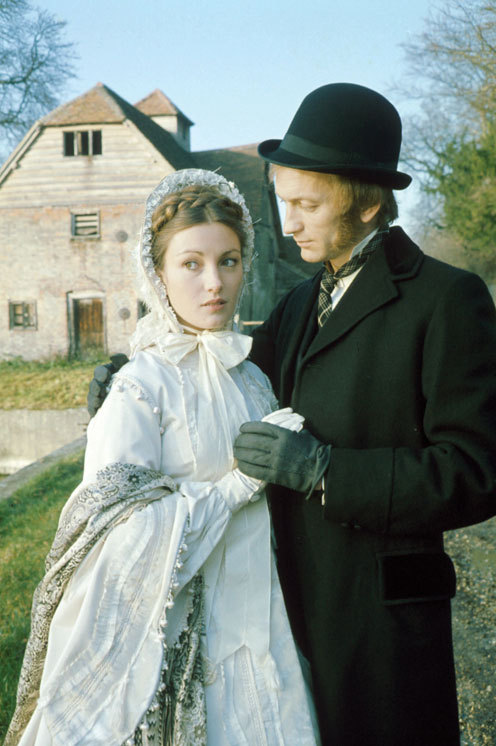
"OUR MUTUAL FRIEND" (1976) Review
I have a curious history with the 1998 adaptation of Charles Dickens' 1864-65 novel, "Our Mutual Friend". I had a lukewarm reaction to it when I first saw it. Following two re-watches of the miniseries, I became a major fan of it. So, when I discovered there had been an earlier adaptation of the novel, I did not hesitate to watch it. My efforts to view the 1976 miniseries, "OUR MUTUAL FRIEND" proved to be difficult, due more to availability reasons. But I finally managed to achieve it in the end.
Whether you are familiar with Dickens' tale or not, "OUR MUTUAL FRIEND" centered around the "death" of the heir to a fortune inherited from his father, a former collector from London's rubbish. The story begins with a solicitor named Mortimer Lightwood, who narrates the circumstances of the death of his client, a former dustman named Mr. Harmon, who collected London's rubbish, to his aunt and other guests at a society dinner. The terms of Old Harmon's will stipulated that his fortune should go to his estranged son John, who had returned to Britain after years spent abroad. John can inherit his father's fortune on the condition that he marry a woman he has never met, Miss Bella Wilfer. However, a Thames River waterman named Gaffar Hexam and his daughter Lizzie discover a corpse in the river with papers identifying the latter as John Harmon. When Mortimer learns of this death, he and his close friend Eugene Wrayburn head toward the river to identify the body. These events led to the following subplots:
*John Harmon fakes his death and assumes the identity of John Rokesmith, the Boffins' social secretary, in order to ascertain Bella Wilfer's character. John had recruited a sailor to impersonate him, but the latter betrayed him by drugging and later, robbing him. However, the sailor was later betrayed by others who not only robbed him, but also murdered him. The Hexams had discovered the sailor's body.
*Old Mr. Harmon's employees, Nicodemus and Henrietta Boffin inherit the Harmon fortune and take in Bella Wilfer as a ward to compensate for her loss, following John's "death".
*Gaffer Hexam's embittered former partner, Roger "Rogue" Riderhood falsely accused Hexam of murdering "Harmon".
*While accompanying his friend, Mortimer Lightwood, to identify Harmon's body, Eugene Wrayburn meets and falls in love with Hexam's daughter, Lizzie.
*Charley Hexam, Lizzie's younger brother, has a headmaster named Bradley Headstone, who becomes romantically and violently obsessed with Lizzie.
*Mr. Boffin hires a ballad-seller with a wooden leg named Silas Wegg to read for him. When he finds another will of Old Harmon's in the dust, he schemes with a taxidermist named Mr. Venus to blackmail his newly rich employer.
One of the reasons I had such difficulties in embracing the 1998 version of "OUR MUTUAL FRIEND" was the complex nature of the narrative. The story began with the death of the fake John Harmon and the latter's deception and spiraled out into different subplots. Years ago, I had made the mistake of assuming that most of these subplots had no connection whatsoever. Following my other viewings of the 1998 miniseries and this production, I now realize that the subplots had three major connections - money, class and John Harmon. Nearly every subplot had something to do with money, class or both. As for John Harmon . . . I found myself pondering on the fates of the main characters if John had not made that decision to recruit that sailor into his deception regarding his identity. Perhaps some of the subplots would have panned out - John and Bella's marriage (if he had agreed to the terms of his father's will), Charley Hexam's education, Lizzie Hexam's introduction to Bradley Headstone and her subsequent rejection of his marriage proposal. But there are some - Lizzie meeting Eugene Wrayburn, Eugene and Bradley's conflict, and Silas Wegg's attempt to blackmail Boffin - definitely would not have happened if John had not engaged in any deception on his part. Nearly the entire story seemed to be a case of "the Six Degrees of John Harmon".
One story arc from the novel seemed to be missing in this series - namely the attempt made by elite, yet impoverished newlyweds Alfred and Sophronia Lammle to befriend and scam a young heiress named Georgiana Podsnap. I can understand why the screenwriters had never included this arc into the miniseries, considering that the Lammles and Miss Podsnap had no connection to John Harmon, whatsoever. But apparently, the screenwriters had decided to delete them altogether, unlike screenwriter Sandy Welch, who had used the Lammles to go after Mr. Boffin in the 1998 adapation.
And how did "OUR MUTUAL FRIENDS" handled the narrative's multi-arcs? I thought director Peter Hammond, along with screenwriters Julia Jones and Donald Churchill managed to handle them quite well. Despite the various arcs being scattered to winds, all three managed to convey how they all connected in the end. My only complaint was how the director and the writers introduced the various arcs. I noticed that they mystery surrounding the discovery of John Harmon's body seemed to dominate the series' first episode, whereas the introductions of the Boffins and Bella Wilfer seemed to dominate the second. This seemed to give "OUR MUTUAL FRIEND"'s narrative a "paint-by-the-numbers" style in the miniseries' first third. From Episode Three and onward, Hammond, Jones and Churchill seemed to have no trouble juggling the various arcs within an episode.
But as much as I had enjoyed "OUR MUTUAL FRIEND", I have a few quibbles. Like a good number of BBC/ITV costume dramas between the 1950s and the 1980s, this production seemed to suffer from from the occasional slow pacing, due to Hammond shooting the miniseries more like a stage play. Granted, there were a few scenes that seemed avoid this fallacy, due to being filmed in an exterior setting - the Hexams' discovery of the fake John Harmon's body, Lizzie Hexam's discovery of the dying Betty Higden and Bradley Headstone's attack upon Eugene Wrayburn. But a good number of scenes - mainly those with interior settings and those that featured Silas Wegg and Mr. Venus' blackmail conspiracy - seemed to drag nearly forever, to the point that I found myself wondering if I was watching a televised stage play. I have one last complaint. The miniseries ended with the main characters briefly discussing Bradley Headstone's fate with a few words, not long after Eugene and Lizzie's marriage. As much as I had enjoyed this production, I found this ending rather abrupt and cold - quite disappointing, when I recall how the 1998 miniseries had ended.
As much as I had enjoyed many of the performances in the miniseries, there were the occasional bouts of hammy acting that left me wincing. For me, the biggest offenders proved to be Alfie Bass, Edmond Bennett, David Troughton, and Kathleen Harrison. Do not get me wrong. They all managed to convey their characters' personalities very well. But I believe they had indulged just a bit too much in stagey or hammy acting for my taste. But there were performances that I had actually enjoyed. Granted, performers like Leo McKern and Polly James, who portrayed Mr. Boffin and Jenny Wren respectively, had their moments of hammy acting. But I thought they managed to give first-rate performances in the long run, creating some memorable interpretations of their characters. However, the series featured some excellent supporting performances from the likes of Andrew Ray, Hilda Barry, John Collin, Ray Mort, Patricia Lawrence and Ronald Lacey.
The miniseries also featured some outstanding performances. They included John McInery as the intelligent, yet compassionate John Harmon; Lesley Dunlop, whose Lizzie Hexam managed to be warm and caring without any taint of treacly behavior; Jack Wild as Lizzie's eager and ambitious younger brother Charley Hexam; and Warren Clarke as Bradley Headstone, who managed to be both sympathetic, yet frightening at the same time. Yet, I believe the two best performances came from Nicholas Jones and Jane Seymour as Eugene Rayburn and Bella Wilfer. Jones gave a subtle, yet very complex performance as the roguish Eugene, who seemed torn by his love for Lizzie and his reluctance to pursue her honestly, due to her lower class. Seymour's portrayal of Bella struck me as equally complex, as she managed to convey her character's growing development from the mercenary and shallow girl to a warm, generous and yet spirited woman.
Aside from the opening shot of the Thames River for each episode, I must admit that I found myself unimpressed by Elmer Cossey's cinematography and Sam Barclay's lighting. Not only did I find the miniseries' visuals rather flat, but also a bit too dark. On the other hand, I thought Chris Pemsel's production designs pretty spot-on. I thought he did a competent job in re-creating mid-19th century London and England. I especially have to give praise to Robin Fraser-Paye's costume designs. I found his costumes - especially for female characters like Bella Wilfer, Lizzie Hexam, Mrs. Boffin and Jenny Wren - rather exquisite, as shown in the image below:
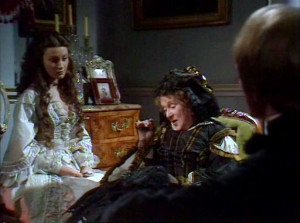
As for the hairstyles featured in "OUR MUTUAL FRIEND" . . . I have mixed feelings about them. I have no idea who the hairstylist was, but he or she did managed to come close in re-creating mid-19th century hairstyles. Only those worn by most of the younger female characters seemed to be loose curls or flowing curly hair in the style of those featured in many pre-Raphaelite paintings - especially by Lesley Dunlop and Polly James. Although such hairstyles were popular in mid-19th century art (especially in Britain), I have grave doubts that many women - or many young women between the 1840s and the 1860s wore their hair in such a manner.
Overall, I cannot deny that "OUR MUTUAL FRIEND" was a first-rate adaptation of Charles Dickens' 1864-1865 novel. Yes, I had a few issues that included the miniseries' photography, some writing decisions, a few over-the-top performances and the belief that I felt I was watching a filmed play. But despite these quibbles, "OUR MUTUAL FRIEND" also featured some top-notch performances from a cast led by John McInery and a screenplay by Julia Jones and Donald Churchill that did Dickens' novel proud.

#costume drama#period drama#period dramas#charles dickens#our mutual friend#our mutual friend 1976#victorian age#john mcinery#jane seymour#lesley dunlop#nicholas jones#warren clarke#leo mckern#polly james#andrew ray#ronald lacey#alfie bass#kathleen harrison#hilda barry#john collin#david troughton#ray mort#patricia lawrence#edmund bennett#peter hammond#john harmon#bbc drama#julia jones#donald churchill
1 note
·
View note
Text







at the same damn time ..
#twd#negan smith#negan x reader#rick grimes x y/n#norman reedus#daryl dixon smut#lana del ray aesthetic#twd daryl dixon#jeffery dean morgan#andrew lincoln
900 notes
·
View notes
Text

This is what I’ve been waiting for!!!
#critical role#cr spoilers#campaign 3#c3e65#beacon tv#beacon#cr andrew#marisha ray#laura bailey#laudna#imogen temult#southern gothic#laudna x imogen#imodna
622 notes
·
View notes
Text

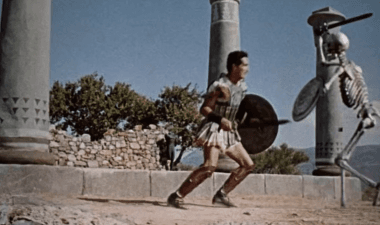
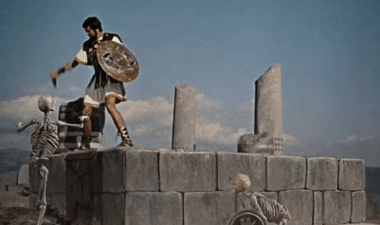
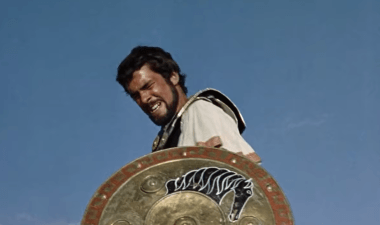
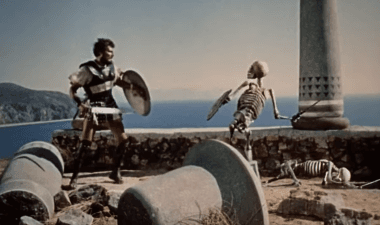
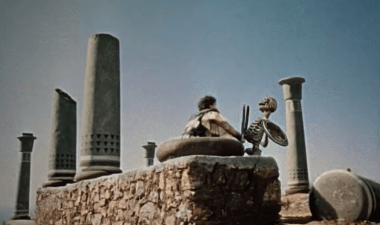

Jason and the Argonauts (1963)
#jason and the argonauts gif#ray harryhausen gif#stop motion animation#60s fantasy movies#skeleton warriors#special effects#todd armstrong#andrew faulds#ferdinando poggi#don chaffey#60s movies#sixties#1963#gif#chronoscaph gif
2K notes
·
View notes
Text
HES SO I NEED HIM






#mgg fluff#i love mgg#mgg pics#mgg#mgg x y/n#mgg x you#mgg x reader#matthew gray gubler#ethel cain#lana del ray aka lizzy grant#effy stonem#girl interrupted#girlblogging#girlhood#just girly things#skins effy#skins uk#this is what makes us girls#girl blog#nyc girl#girl of the year#gilrblogger#girl group#manic pixie dream girl#hell is a teenage girl#im just a girl#tumblr girls#andrew garfield#daddy's good girl#beauttiful girls
213 notes
·
View notes
Text
nothing unites girls like having a crush on the same celebrity twice their age
#twd#twd fanfiction#twd fanfic#carl grimes#the walking dead#daryl dixon#twd smut#carl grimes smut#smut#the walking dead daryl#norman reedus#chandler riggs#andrew lincoln#jeffrey dean morgan#rick grimes#celebrity#girlblogging#this is what makes us girls#tumblr girls#coquette#lana del ray aka lizzy grant
231 notes
·
View notes
Text





he’s so boyfriend
#andrew garfield#amazing spider man#i’m just a girl#girlblogging#girlhood#lana del rey#hell is a teenage girl#coquette#lana del ray aesthetic#lana is god#lana core#this is what makes us girls#femininity#girl interrupted#girl blogger
116 notes
·
View notes
Text
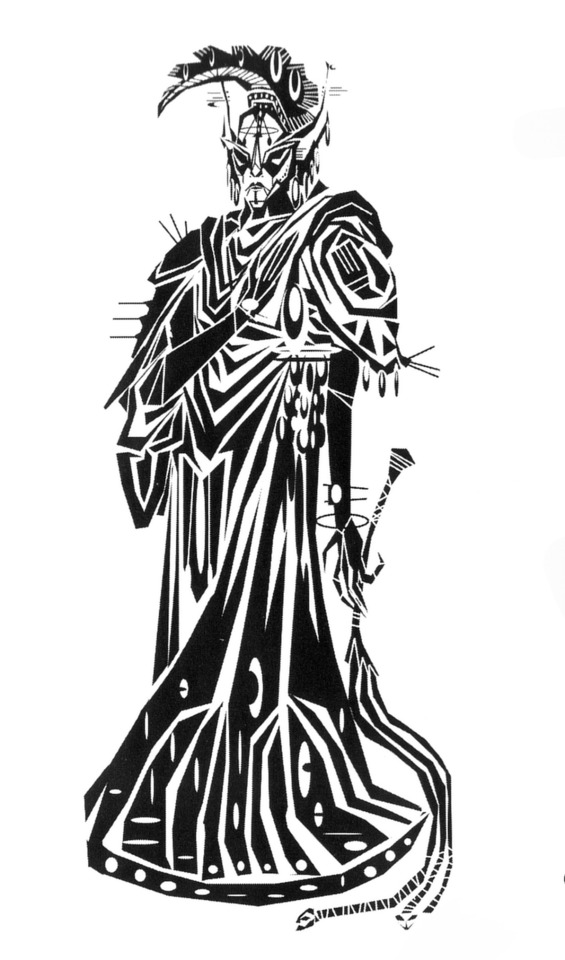
Saint Olms
Art for The Elder Scrolls III: Morrowind
Art by Andrew Rai
133 notes
·
View notes
Text

#movies#polls#bride & prejudice#bride and prejudice#2000s movies#gurinder chadha#aishwarya rai bachchan#martin henderson#naveen andrews#daniel gillies#indira varma#requested#have you seen this movie poll
328 notes
·
View notes
Text
























mcr at reading festival, august 27 2006. photos by andrew kendall
more concert pics here
#my chemical romance#mcr#my chem#the black parade#gerard way#frank iero#ray toro#mikey way#black parade era#my stuff#concert photography#and these are the last ones from andrew kendall!!
98 notes
·
View notes
Text

#a2a#ashes to ashes#ashes 3#alex drake#keeley hawes#gene hunt#philip glenister#ray carling#dean andrews#shaz granger#montserrat lombard#chris skelton#marshall lancaster#a2a textpost meme#my textposts
84 notes
·
View notes
Text
My biggest fear is that my celeb crush becomes a pedo
#Donottouchkids#celebrity crushes#twilight#celebs#andrew lincoln#norman reedus#matthew lewis#matthew lillard#quackity#krist novoselic#gerard way#mikey way#ray toro#frank iero#sapnap#austin abrams#chandler riggs#alan rickman#adam sandler#james marriott#matt sturniolo#foolish
38 notes
·
View notes